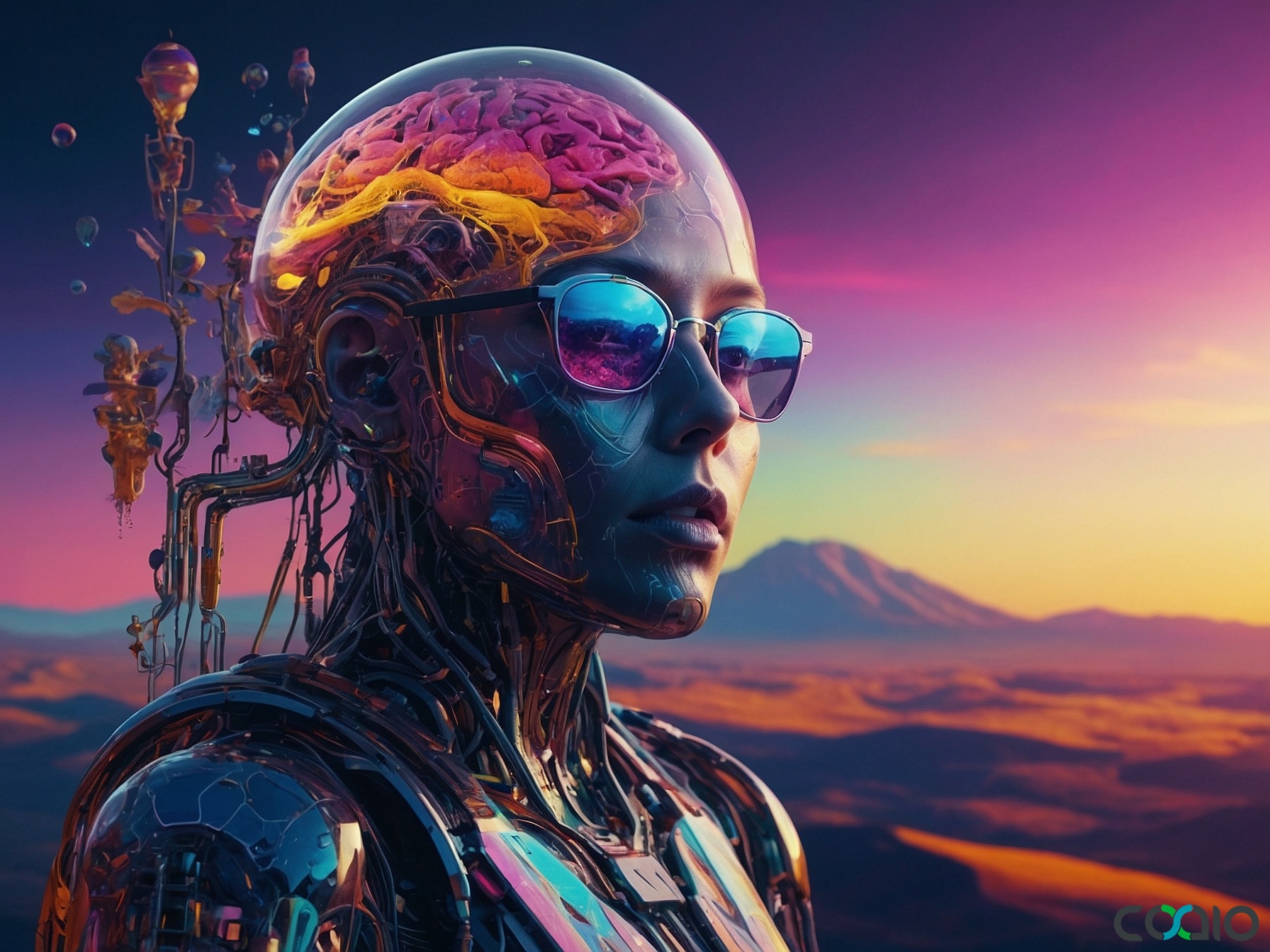
Navigating the Code Modernization Maze: AI Risks, Developer Trust, and Tech Innovations in 2025 Software Development
As we step into August 2025, the software development landscape is buzzing with challenges and opportunities, from grappling with outdated codebases to navigating the pitfalls of AI integration. This week’s headlines highlight how enterprises are tackling legacy systems, the growing security threats posed by AI-generated code, and evolving developer sentiments. Drawing from recent reports on SD Times and TechCrunch, we’ll explore these trends and their implications for businesses striving to innovate in a fast-paced digital world. With software development at a crossroads, understanding these issues is crucial for startups and established firms alike.
The Challenges of Code Modernization in Large Enterprises
In the ever-evolving tech sector, code modernization remains a critical yet daunting task for many organizations. According to a recent article on SD Times, large enterprises are wrestling with the “beauty and chaos” of legacy code, exemplified by systems built on decades-old SQL procedures and business logic. These platforms, capable of handling over 3 million concurrent users and hundreds of micro code deployments per week, represent both a testament to engineering prowess and a potential minefield of risks Read more.
The article delves into how even minor changes can ripple through these complex systems, potentially disrupting operations and leading to costly downtimes. For instance, enterprises must balance the need for updates to improve efficiency and scalability with the inherent dangers of altering established code. This conundrum is particularly relevant in 2025, as businesses face pressure to adopt cloud-native architectures and modern frameworks to stay competitive. The piece emphasizes that without a strategic approach, modernization efforts can backfire, underscoring the importance of thorough planning and expert oversight.
This challenge is especially pertinent for startups and growth-stage companies looking to scale without overhauling their entire infrastructure. By outsourcing specialized development teams, businesses can mitigate these risks, ensuring that legacy systems are updated efficiently and securely. Such partnerships allow for focused expertise in areas like business analysis and risk identification, turning potential chaos into a streamlined process.
Rising Security Risks from AI-Generated Code
AI’s role in software development has exploded, but it’s not without significant drawbacks. A Veracode research report, as covered by SD Times, reveals that AI-generated code introduces major security vulnerabilities in nearly half of all development tasks Read more. The study highlights how AI tools, while adept at producing functional code quickly, often overlook critical security protocols, making it easier for attackers to exploit weaknesses.
For example, the report notes that attackers can now identify and exploit vulnerabilities in AI-generated code more rapidly than ever before. This not only empowers less-skilled hackers but also escalates the sophistication of cyber threats. In 2025, with AI adoption accelerating, developers are urged to implement robust security measures from the outset, such as regular code audits and vulnerability scanning. The implications are far-reaching: a single breach could compromise user data, erode trust, and result in financial losses running into millions.
Amid these risks, the value of reliable, human-led development processes becomes evident. Businesses can benefit from teams that combine AI tools with manual oversight, ensuring that code is not only functional but also secure. This approach aligns with strategies that prioritize high-quality, cost-effective software solutions, helping companies navigate the AI landscape without falling prey to its pitfalls.
Worsening Trust in AI Outputs Among Developers
Developer sentiment toward AI is taking a hit, as revealed in Stack Overflow’s 2025 Developer Survey. The survey, which polled over 49,000 developers across 177 countries, indicates that 84% are using or planning to use AI tools, yet trust in their outputs is declining year over year Read more. Respondents cited issues like inaccuracy, bias, and the potential for AI to generate “hallucinated” code that doesn’t align with real-world requirements.
This erosion of trust stems from experiences where AI suggestions fail to deliver reliable results, leading to inefficiencies and errors in production environments. As AI becomes more integrated into daily workflows, developers are calling for better tools and training to bridge the gap. The survey underscores a broader industry trend: while AI promises to accelerate development, it must be complemented by human expertise to maintain quality and reliability.
In this context, fostering developer confidence is key to innovation. By leveraging external teams with proven track records in project management and design, businesses can enhance their AI implementations, ensuring that outputs are vetted and trustworthy. This not only addresses immediate trust issues but also supports long-term growth by minimizing wasted resources on unreliable code.
Innovations in AI and Advertising: Amazon’s Alexa+ Strategy
Beyond core development challenges, AI’s expansion into consumer-facing applications is reshaping how tech giants operate. TechCrunch reports that Amazon CEO Andy Jassy is pushing for AI-generated ads within Alexa+ conversations, marking uncharted territory in user interactions Read more. This move could integrate personalized advertising seamlessly into multistep dialogues, potentially helping users discover products while raising privacy and ethical concerns.
From a software development perspective, this innovation highlights the need for sophisticated AI models that can handle dynamic, conversational interfaces. Developers must now focus on creating systems that balance user engagement with ethical advertising practices, ensuring that AI-driven features enhance rather than intrude upon experiences. As Amazon experiments with this, it sets a precedent for other companies to follow, pushing the boundaries of what’s possible in voice-activated tech.
This evolution in AI applications ties back to broader software development trends, where integrating advertising and user interactions requires careful planning. Businesses aiming to innovate in similar spaces can draw lessons from these developments, emphasizing user-friendly designs that prioritize both functionality and ethics.
The Impact of Tariffs on Tech Development: Apple’s Latest Projections
Economic factors are also influencing software development, as evidenced by Apple’s recent financial disclosures. TechCrunch details how Apple projects tariff-related costs to reach $1.1 billion in the next quarter, driven by global trade tensions Read more. CEO Tim Cook attributes sales growth to product strength rather than tariff fears, suggesting that consumers are drawn to innovative features over external pressures.
For software developers, this underscores the importance of cost-effective strategies in an era of economic uncertainty. Tariffs can inflate development expenses, particularly for hardware-software integrations, forcing companies to optimize their processes. Apple’s approach—focusing on robust product design and efficient management—serves as a model for maintaining competitiveness amid rising costs.
In response, businesses are turning to streamlined development models that reduce overhead. This includes outsourcing elements like competitor research and tech management, allowing teams to deliver high-quality software without the burden of escalating expenses.
As we wrap up this exploration of 2025’s software development news, imagine a world where innovative ideas aren’t bogged down by technical hurdles or security woes—a place where founders can dream big without the mess of building everything from scratch. That’s the essence of Coaio’s vision and mission: to create a seamless journey for entrepreneurs, turning bold ideas into reality with smart, efficient strategies that minimize risks and maximize impact, much like navigating through the code mazes we’ve discussed today.
About Coaio
Coaio is a Hong Kong-based tech firm that specializes in outsourcing software development and building dedicated teams in Vietnam. We offer comprehensive services including business analysis, competitor research, risk identification, design, development, and project management, delivering cost-effective, high-quality software solutions tailored for startups and growth-stage companies. Our user-friendly designs and expert tech management support clients in the US and Hong Kong, helping them streamline operations and focus on their core vision without the headaches of in-house development. By partnering with us, you can access skilled teams that turn your ideas into efficient, secure software, saving time and resources while driving success.
 English
English
 Français
Français
 Español
Español
 廣東話
廣東話
 中文
中文
 日本語
日本語
 한국어
한국어
 العربية
العربية
 Deutsch
Deutsch

